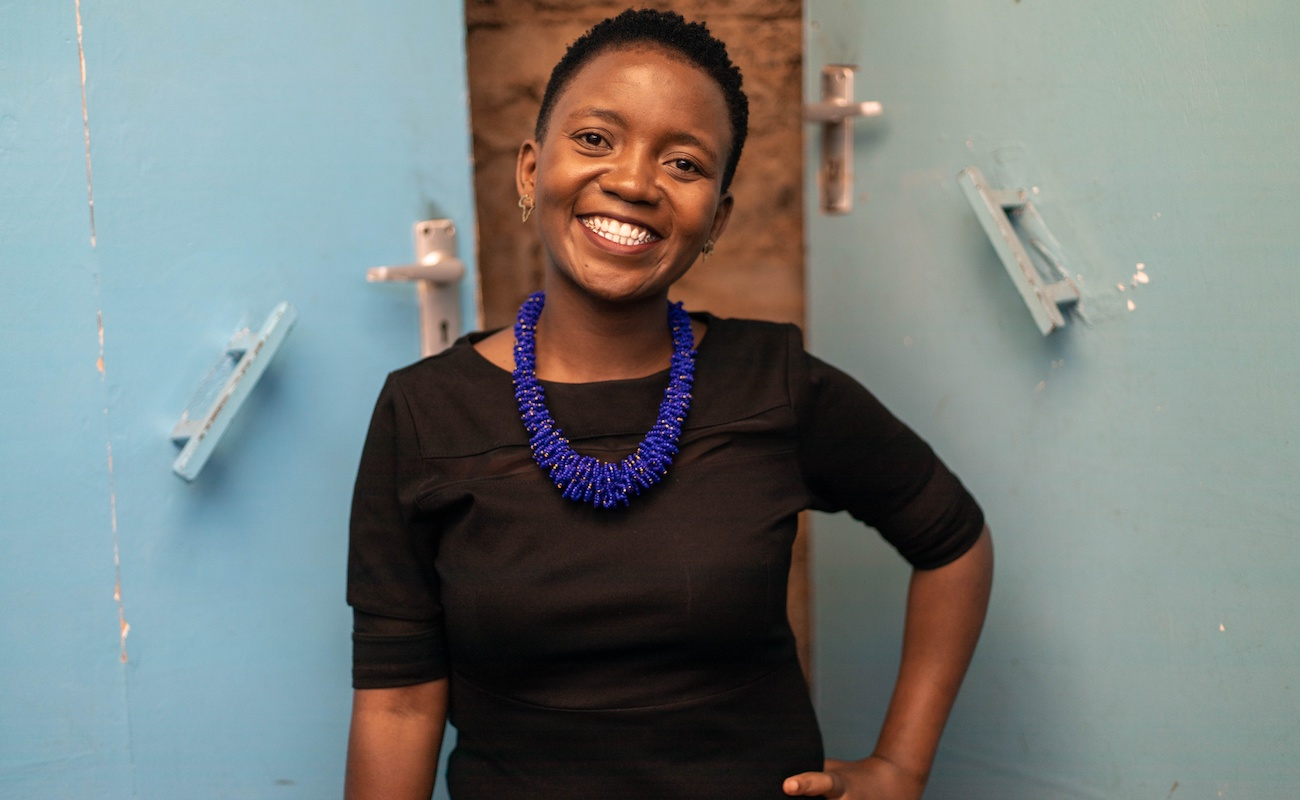Serving Marginalized Populations in Kenya Through Entrepreneurship Training and Advocacy
How KCEO Empowers Young Mothers with Disabilities
 Photo Credit: Olivia Graziano/USAID
Photo Credit: Olivia Graziano/USAID
USAID awarded The Kibera Community Empowerment Organization (KCEO) a grant to support its work in Kenya. Kibera is the largest slum in Africa and KCEO’s Young Mothers Incubation Program has served over 200 women with disabilities, empowering them to be active in their communities through entrepreneurship and advocacy. Read on to learn more about how KCEO works to serve the unique needs of marginalized communities, namely women with disabilities and listen to our podcast about it here.
Supporting Entrepreneurial Efforts
Although there is no recent data on the situation of people with disabilities in Kenya, young people with disabilities in both developed and developing countries, face difficult obstacles in accessing education, have limited employment opportunities, and are at a greater risk of being exploited. Kenyan women with disabilities, in particular, are further stigmatized as a result of their identities as women and persons with disabilities.
KCEO is committed to enabling Kibera’s residents to access justice, equity, and empowerment for a positive impact on their lives. That’s why young mothers with disabilities are encouraged to take active participation in shaping the future of their destinies. KCEO provides training on entrepreneurship, leadership, and other business skills. They also provide some seed funding for women to start or improve their existing businesses. Rhoda Ayieko, a director at KCEO shared that, “Without funding to take the idea to another level, it becomes difficult.”
Mary, a KCEO grant recipient, makes briquettes (a material made of charcoal, soil, and water) that people in the community use to cook and warm their homes. The network of women in the Kibera community recommended Mary for KCEO’s resources, and through financial capital, she was able to purchase more charcoal, increase her production of briquettes, and expand her business.
Advocacy for the Disability Community
While entrepreneurship training and funding are vital, advocacy is also necessary to increase visibility, acceptance, and awareness for this community. Many people like Mary have grown up in families that believe disabilities are a curse or a burden. “It is a culture issue. The girls were not allowed to attend normal schools. Kenya should address the issue of inclusivity. They shouldn’t go to a school just for people with disabilities.”
The community of Kibera has a tradition of hosting community “barazas,” or local gatherings where residents can raise issues. KCEO decided to use the community baraza as a forum for young mothers with disabilities to share their perspectives. This meeting was accessible by community members of all abilities and showcased what people with disabilities are capable of. “Initially women with disabilities said that many people didn’t want to buy their products. [After the baraza], we got feedback that the community attitude has changed towards them.”
USAID decided to support KCEO because of its work to develop thoughtful solutions to reach populations that are often, intentionally or unintentionally, marginalized by the local community and confront cultural norms. By providing resources to young mothers with disabilities and also addressing the barriers to economic growth within the community, KCEO helps women provide for their families and inspires dignity and pride in what they are accomplishing.
Learn More About Young Women Transform Prize Winner KCEO
Read NowRelated Blog Posts

Unlocking a World of Learning

Make the Most of Your USAID Learning Network Membership
